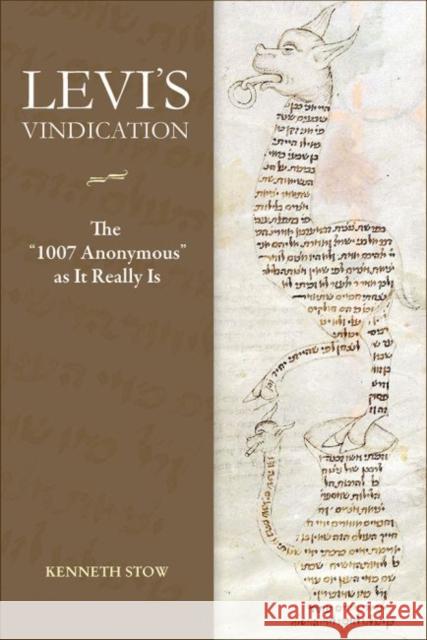Levi's Vindication: The 1007 Anonymous 'as It Really Is' » książka
Levi's Vindication: The 1007 Anonymous 'as It Really Is'
ISBN-13: 9780822945185 / Angielski / Twarda / 2017 / 200 str.
The "1007 Anonymous," an imaginative if brief text composed in the third or early fourth decade of the thirteenth century, illustrates the proper relations between Jews, their lay rulers, and the pope. The pope, consistent in applying laws that both restricted and protected Jews, is seen as a just ruler. Kings and dukes, by contrast, were inconsistent and capricious, threatening Jewish life.
This message had to be conveyed indirectly, and the "1007's" vehicle for doing so was a fictional story of murderous attack and forced conversion known as "The Terrible Event of the Year 1007." Yet an examination of the details of this story--which include a direct borrowing from The Quest of the Grail composed in 1221, and a reference to coinage that could only have been made during the early thirteenth century--reveals the actual time of the "1007's" composition was later.
Similarly, the fact that the veracity of the "1007'" cannot be proven through a comparison with the earlier chronicles of Raoul Glaber and Ademar of Chabannes--as students have wrongly attempted in the past--was also demonstrated by the great French scholar Israel Levi at the turn of the twentieth century. No one paid him heed-- regrettably, although he was absolutely correct. This book is therefore appropriately named Levi's Vindication.











